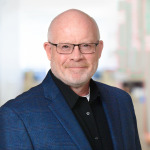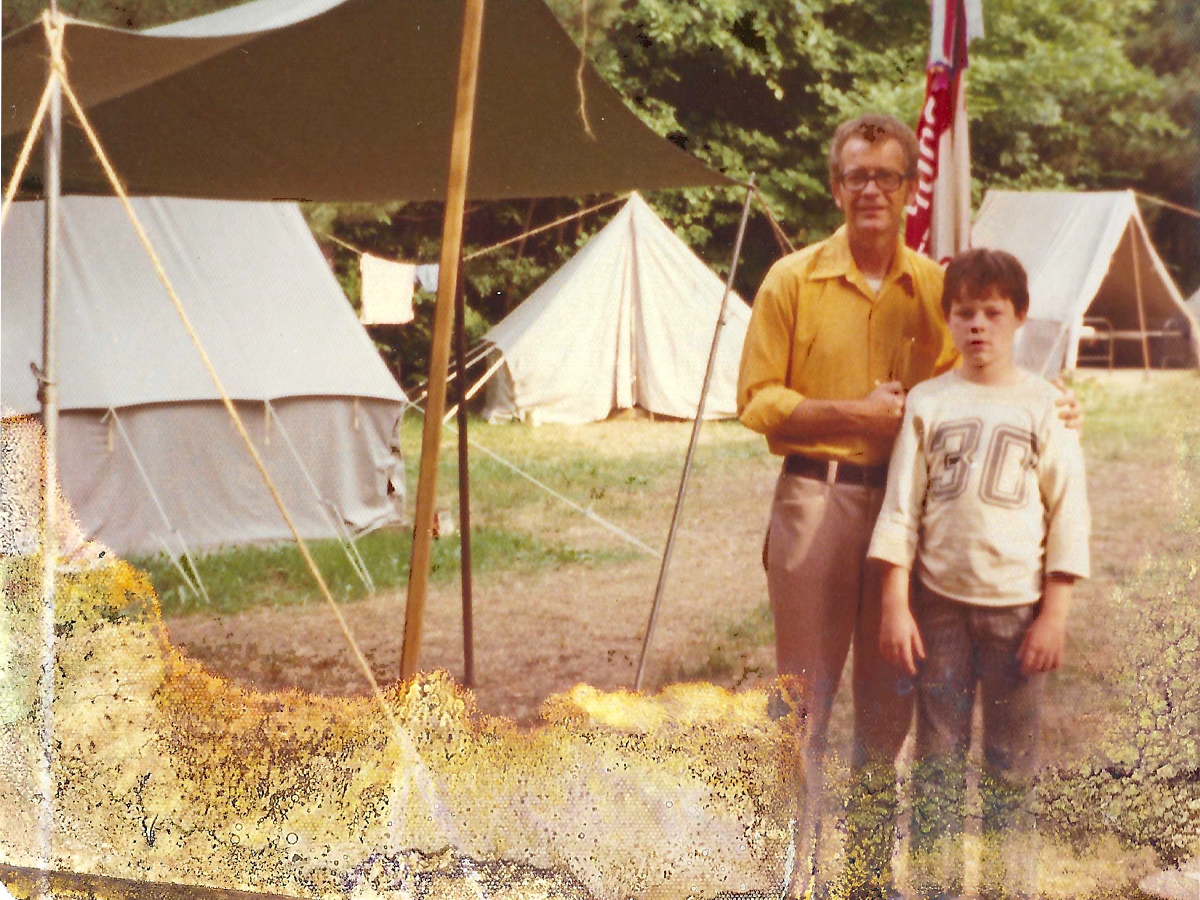The blog article below is a departure for me. It has nothing to with digital marketing advice, or my observations on Google or SEO. It's my attempt to explain my "Why."
In his book, Start with Why, Simon Sinek encouraged readers to answer a simple question: "Why do you do what you do, beyond the need for earning money?" In other words, why did you choose your career, where does your passion lie, and what is the deeper meaning behind it? The question can be a difficult one to answer and it might require some introspection. For me, it took several decades of sorting through memories and feelings during long drives or sleepless nights. But I needed some perspective to finally understand my "Why."
I'm sharing it here with the hope that once you understand my "Why," you will understand the drive behind Signal.
Watching My Father
As I’ve thought about things through the years I’ve come to understand that my Dad was one of the hardest working people I’ve ever known. The effort and time he put in to grow his own company was admirable. But unfortunately it also created a distance between himself and his children. What we didn’t know was that he was dealing with adult concerns, such as where was the money going to come from to make next month’s mortgage payment. As we focused on lighter, less important things like sports and music, as teenagers do, he had less interest in us and what we cared about. We, in-turn, adopted a similar attitude toward him. It wasn’t right, it just was.
But what I’ve come to terms with is that he worked long hours because he loved us and wanted to provide for us. He just didn’t know how to show it to a bunch of self-interested teens.
Working in the Steel Economy
My Dad was from the Northern part of West Virginia, outside of Morgantown. During the Korean War, he was stationed in England where he met my mother. They married and came back to the United States to live. They moved around the Midwest, chasing jobs, until they finally settled outside of Youngstown, Ohio in 1962. At that time, Youngstown was a booming, steel-producing city.
With two children and a third on the way, me, my father earned a good living as a tool and die engineer in the 1960s. The company he worked for created a variety of products made from steel. It was very much a part of the steel economy that was Youngstown after the Second World War.
In 1970, he decided to start his own business. Using his and my Mom’s initials, Scott and Marjorie Turner, he named it SMT Design & Associates. I remember him being really excited about the prospects. So much so, in fact, that he painted his new company's name on the center of our house. For a time, things worked out well. We were comfortable enough that he bouthgt a motor home and was part owner in an airplane. Unfortunately, there were tough economic times just around the corner.
Black Monday
As the early 1970s moved into the mid-1970s, the economy took a dive. Stagnant growth and inflation gave rise to a new word to describe the conditions: “Stagflation.”
It was a hard period. Americans suffered through the gas shortage and long gas lines, staggering price increases at grocery stores, and labor unrest and strikes. All of these put a burden on an already weak economy. But those who lived in the Youngstown area got an additional hit.
On September 19, 1977 Youngstown Sheet and Tube’s Campbell Works shut down its operations for good. Some 5,000 employees were suddenly out of work. This event was so devastating to our area that it has a name: It is referred to as “Black Monday.” It was the beginning of the end for steel making in Youngstown and surrounding communities. One by one, like dominos falling, the area’s steel mills closed, followed by the businesses that were part of the steel economy. Some estimates put the number of laid-off workers as high as 50,000 over a five-year period!
These closures were some of the first to take place in the larger midwest region that became known as “The Rust Belt.”
Getting By
My father was able to pivot and got over-flow design work from the local GM plant in nearby Lordstown and Packard Electric, a division of GM that did electrical wiring for GM vehicles. But times were tough. For the first time in since having kids, my Mom went back to work to bring money into the family.
This was the period when I saw my dad change. The stress and worry about money took their toll on him. Whenever he thought he was finally getting ahead, another economic hit would come his way. He had his first heart attack at age 40, and another at 43. There would be a third followed by a triple-bypass surgery in the 1980s. The constant worrying was killing him.
He knew he needed to market his business, to get what he did in front of more people, but h didn’t know how to do that. He was an engineer by trade, not a marketer. He had heard that you needed to wine-and-dine clients and give them gifts if you wanted to get work. So, he did that. It got him work, but never enough to make a difference and get him financially secure.
In the late 1970s he met a man who was a part of the Masons. He told my Dad that it was a great way to meet people. So he joined the Masons and began studying to get ahead in that organization. He worked really hard, too, and made progress. But the people he met there were not the people who could help his business. He needed to meet decison-makers from manufacturing businesses. But there were none of those folks in his chapter, only former steel workers who didn’t own companies, and probably never would.
So, he continued to worry and try different things. He travelled to Detroit to meet with Ford executives. It didn't go anywhere. He traved to San Francisco to meet with executives at Hewlet Packard at the ver beginning of the PC age. Unfortunately, nothing came from it.
For my Dad, it was a 20-years of trying different ideas, each delivering simialr results. He wanted more and he tried really hard. He didn't want to just get by. God bless him, he never stopped and he never gave up. I believe whatever measure of tenacity I have I owe to him. But he never figured out how to market his business successfully so he could take it to the next level.
He died of heart-related issues at the age of 61 in 1994.
The Next Best Thing
As I look back upon it today, watching my Dad worry about money and worry about marketing his business left a deep impression on me. I wish I could talk to him as the person I am today and offer some help. But of course, I can’t do that. So, I’m trying to do the next best thing.
I’m just trying to help where I can.
So that’s what I do. That’s what Signal does. We can’t work with everyone, but we work with those who get the vision. For those folks, we try to go above and beyond, too. I want to make sure they feel like they're being taken care of. We do little things such as communicating with them every week to let them know what we did for them. Small local businesses don't get that level of appreciation or service very often.
So, That's why I do what I do. That's why we do what we do at Signal. If I can help someone, I feel like I’m doing the right thing. I feel like I’m walking in the foot steps of the kind of person I want to be and if I keep walking in those foot steps, maybe I’ll eventually get there and become that person. In this later part of my life, I’m just trying to finish strong and help people who are in a similar situation to what my Dad's was. I'm trying to pay him back, along with anyone else who has ever helped me.
That’s my story. That’s Signal’s story. That's our "Why."


